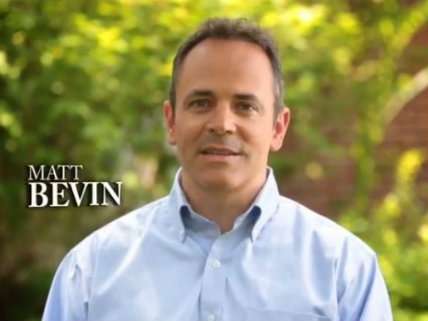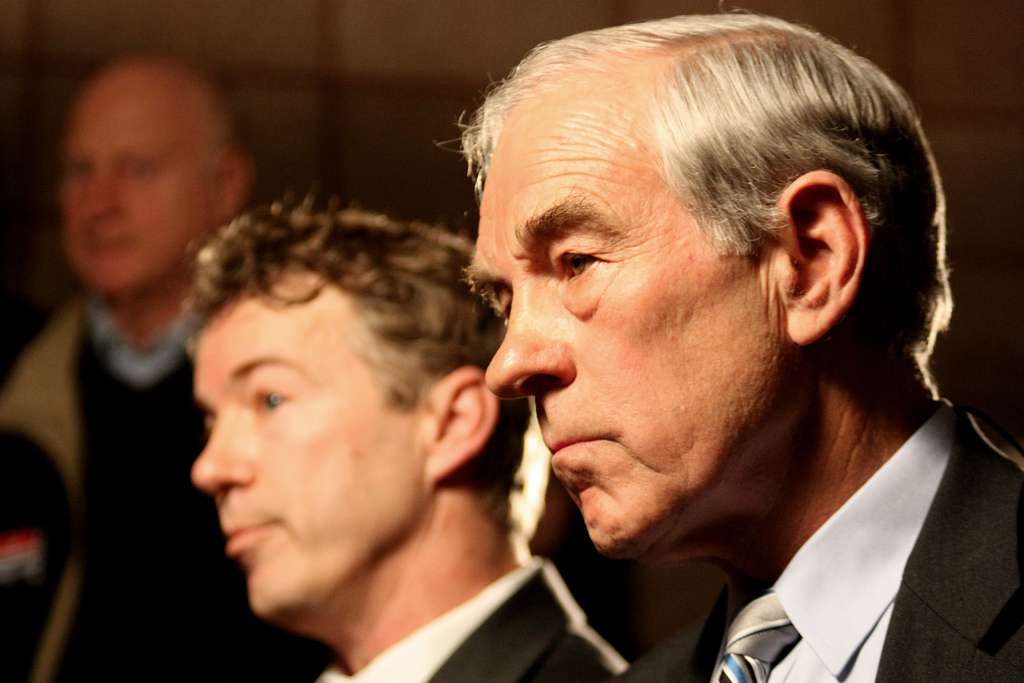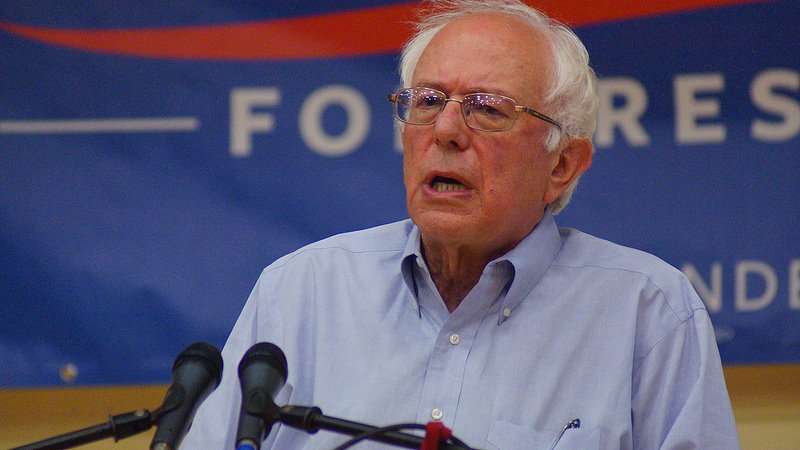Yesterday's Election: A Challenge for Democrats—and a Crisis for Politics
Matt Bevin's big surprise win the Kentucky governor's hints at trouble for both Democrats and the larger political system.

Businessman Matt Bevin's surprise win in last night's Kentucky governor's election—polls had put him two points behind Democrat Jack Conway, but he won by nine points—has a number of obvious implications for Kentucky policy: Among other things, Bevin has promised to shut down the state's Obamacare exchange and transition to the federal system, and has stated his opposition to the state's participation in the health law's Medicaid expansion, indicating that he'll push the federal government for a waiver to alter the state's implementation of the program.
But it's also suggestive of some deeper changes occurring in American politics during the Obama era, especially at the local level: Democrats have so far been quite successful as a national party, but Republicans are dominating in local races.
As GOP strategist and former GOP leadership aide Rory Cooper tweeted out this morning, Democrats have lost 12 governorships, 69 House seats, 13 Senate spots, and more than 900 state legislature seats under the Obama administration.
Part of what that means is that Republicans are increasingly in control of important state policy levers. With Bevin in Kentucky, we'll get to see a test of how powerful those levers are against Obama's signature initiative, the health care law.
But the Republican party's dominance at the local level also presents serious trouble for Democrats in the medium term. Basically, Democrats have lost a lot of local farm teams, which makes it harder to build the organization back up.

Bevin wasn't the only GOP winner in Kentucky yesterday. As David Weigel and Paul Kane of The Washington Post note, "Republicans nearly swept the other down-ballot races, including knocking off the incumbent state auditor who national Democrats had hoped would challenge [Sen. Rand] Paul in next year's Senate race."
The ongoing political impact of these victories is pretty obvious to state politicians. As Sen. Paul told the Post:
"What this election shows is that people who've been promoting Democrats on the rise in Kentucky have been completely wrong," Paul said in an interview after Tuesday's resounding Republican win. "Not only has President Obama destroyed the party in Kentucky, he's destroyed the bench. The bench that was supposed to rise up and run for office -- that's gone."
This isn't limited to Kentucky. As The Washington Post's Greg Sargent wrote recently, "the deep, deep hole the party has dug for itself in on the level of the states" is a medium-to-long-term problem that at least some Democratic strategists are aware of and have begun trying to address.
There are growing signs that Democrats may have national problems as well.
Polls show that a generic Republican presidential candidate currently bests a generic Democratic candidate by a little more than two points. President Obama's 45 percent approval rating is below the 48 mark, the point at which a president usually gives the rest of his party a boost. As FiveThirtyEight's Harry Enten wrote yesterday, both of those numbers suggest a small but real Republican advantage.

A Quinnipiac University poll released yesterday found that in head-to-head matchups, Republican candidates Marco Rubio, Ted Cruz, and Chris Christie all beat likely Democratic nominee Hillary Clinton by several points, though Clinton still bests Donald Trump by three points.
So part of what yesterday's election results reveal is that, for all the talk about the GOP's tarnished brand and internal chaos—much of which is accurate—the Democratic party isn't in great shape either.
Republicans perform worse on overall favorability measures, but neither party is exactly beloved right now. Indeed, the overall political environment isn't great for either party's established centers of power and influence.
There's a generalized mood of distrust in government and disaffection with conventional politics across the political spectrum right now. While the parties have diverged in many ways, recent polling suggests that "if there is a unifying theme, it is anger at the political system," The Wall Street Journal reported yesterday.
That broad anger with the larger system is at least part of the reason why a candidate like Matt Bevin, a businessman and Tea Party favorite who unsuccessfully attempted to primary GOP Senate Majority Leader Mitch McConnell less than two years ago, can win, and why unconventional presidential candidates like Donald Trump, Ben Carson, and, in a different way, Bernie Sanders are turning out to be more successful than most observers expected even a few months ago.
The core problem runs much deeper than any individual politician or party. It is not just the Democrats or the Republicans each have troubles, although they do. It is that politics itself is in a kind of crisis, as people on both sides of the aisle have lost faith in its ability to deliver, and are looking for alternatives outside the usual options. There is a growing sense that politics no longer works, or at least not the way it should, and is need of a broader shakeup. The party that figures this out, or the outsiders who come up with a way to productively overhaul the system, will be the first to dig a path out the hole.


Show Comments (236)